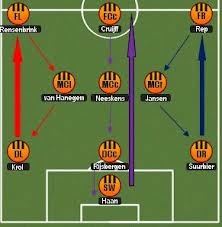October 4, 2012, by Sean Matthews
Total Campus (TM)
 In the previous post, ‘Post-Purchase Dissonance and the Higher Education Product’ we began to think about, specifically, international campus activity in relation to the unusually long and changing experience of the educational product.
In the previous post, ‘Post-Purchase Dissonance and the Higher Education Product’ we began to think about, specifically, international campus activity in relation to the unusually long and changing experience of the educational product.
Interviews with student informants have consistently given even greater emphasis than we had anticipated to the importance of peer-to-peer support networks (formal and informal) in the international student experience. What we as academics, educational managers and administrators might consider ‘supporting’ and ‘facilitating’ activities and facilities are experienced, by our students, as fundamental, as ‘core’, as the necessities of life for students – particularly those who are a long way from home, lost on the ‘island’ of the international campus. Initial interviews with students from the University of Nottingham Malaysia campus (international and Malaysian students) bear out that the same issue is also of major concern when they are, as transfer or mobility students, in the Nottingham UK campus.
It is in this context that we propose the term ‘Total Campus’ as a means for a strategic rethinking of the student experience of, specifically, the international student, defined for our purposes as a non-national of the country in which the campus is located. The term is taken from the influential tactical theory which underpinned the Dutch football team, Ajax, in their extraordinary successful period from 1969-1973, ‘Total Football’. In this conception of the game, players were required to have a high level of tactical and technical skill, permitting them to play in any and all positions on the field (defence, midfield, attack; left or right of the field, and so on), switching positions as required in the flow of play.
In the context of transnational higher education, ‘Total Campus’ requires us radically to reconceive the student/staff relationship, demanding much higher levels of support and training for staff (academic and administrative) to ensure they are able better to understand the interconnecting elements of the student experience. Few (if any) institutions offer such training, or conceive of the staff experience and function in this way.
‘Total Campus’ also involves an important, and major, reallocation of resources to ensure peer-to-peer experience is facilitated as a priority. Too often, Student Association work, clubs and societies, even social spaces, are viewed as secondary or peripheral concerns in internationalisation strategy: research suggests that this is a very serious error.
Career and Alumni initiatives must also, within the ‘Total Campus’ perspective, be better integrated into the second phase of the student experience (the degree programme period), in order to ensure continuity and sustainability within the graduate phase, minimizing the scope for ‘post-purchase dissonance’ by educating the buyer/consumer in what to expect from life after the degree programme.
Dr Sean Matthews is currently seconded from The University of Nottingham, UK as Director of Studies in the School of Modern Languages and Cultures, University of Nottingham Malaysia Campus. With Professor Christine Ennew, he coordinates the Knowledge Without Borders Network.
No comments yet, fill out a comment to be the first

Leave a Reply